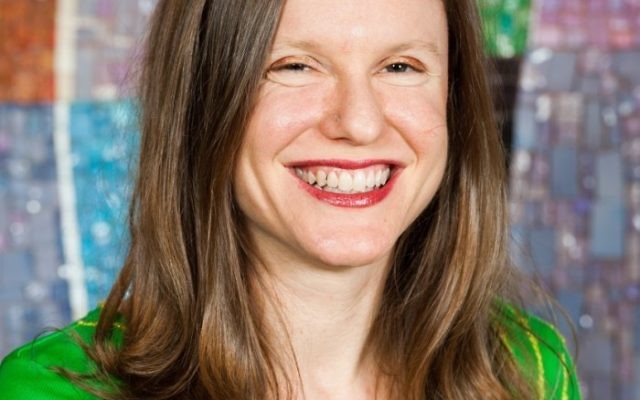Reconstructionists to Ordain Rabbis in Interfaith Relationships
By Rabbi Malka Packer / malkap@interfaithfamily.com
The Reconstructionist Rabbinical College voted Sept. 21 to admit and graduate students in committed relationships with partners who are not Jewish. By revoking its “non-Jewish partner” policy, the RRC has become the first major Jewish seminary to welcome students in interfaith relationships.
As a Reconstructionist rabbi and the director of InterfaithFamily/Atlanta, I see this as a monumental decision for Jews and the future of Judaism. Some compare this event to a change in the admissions policy in 1984 when RRC became the first rabbinical seminary to accept openly gay students. This new decision further opens the door to inspiring spiritual leaders and dynamic role models.
This is an important time in Jewish history. According to the Pew Research Center, about 60 percent of Jews who married between 2000 and 2013 had a spouse of another faith.
In Atlanta, I’ve met with many Jews with partners from other backgrounds. They are searching for Jewish community, meaningful experiences and deep connection. Many of these couples have felt rejection from Jewish leaders, their families and members of the Jewish community.
Our role as rabbis and as Jews is not to exclude interpartnered Jews who want to remain involved in Jewish life; rather, it is our duty to welcome, empower and enhance the lives of our community members. We need to make Judaism relevant, accessible and inclusive and find creative ways to welcome these religiously diverse families.
To say that rabbis are only allowed to in-marry is to say that being in an interfaith family is wrong, and that position forces interfaith families to feel like second-class citizens.
To fully recognize and welcome rabbis whose partners are not Jewish models radical hospitality and acceptance of all kinds of Jewish families.
Not everyone agrees with this change of policy at RRC. There is concern that rabbis should only marry other Jews and be held to a higher standard than their congregants.
There is a prominent fear in the Jewish community about the watering down of Judaism or that these rabbis are not taking Judaism seriously enough.
And yet the only litmus test for these rabbinical students is the religion of their partner — not their morals, values, Jewish practices, family observances, etc. The expectation should be about how a rabbi’s family engages in Judaism and embodies a Jewish life.
I strongly believe that the religion of the rabbi’s partner does not detract from the rabbi’s ability to serve as a Jewish leader. In fact, I see it as a unique asset.
Rabbis with partners of different backgrounds are in constant dialogue with religion. They can relate to the challenges, struggles and rejections that these couples and families face. At the same time, they can share their wisdom and experience as they navigate Jewish community, family life, rituals and customs.
We need to embrace rabbis who exemplify a deep commitment to Judaism and religious life, no matter their partners’ religions.
There are many examples in the Torah that explicitly point to the importance of the stranger in our midst as a source of strength and hope. Moses, for instance, who was credited as being our first rabbi, married Tziporah, the daughter of a Midianite priest. He was not married to a Jewish woman and would not have been accepted into rabbinical school solely based on his marital status. And yet we regard Moses as one of the most important spiritual leaders in the Bible for the Jewish people.
There is much hope and excitement about the future of Judaism. We need to embrace families where one partner is not Jewish. If not, we will drive these families away.
It is not enough to say that intermarriage is acceptable for our congregants but not our leaders. Beyond performing interfaith lifecycle events and educational programming, Jewish communities must live out their claims of inclusivity.
In order to honor and affirm Jews and the people who love us, we must keep Judaism relevant while embracing the beauty of tradition. We must welcome all who wish to lead a rich and meaningful Jewish life.





comments